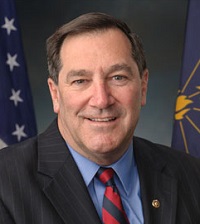ampCNG’s compressed natural gas (CNG) long-haul truck fleet has surpassed 30 million miles. The Class 8 CNG trucks achieved a fuel efficiency of 6.17 miles per diesel equivalent gallon. The company says with this achievement, they have demonstrated the commercial and operational viability of CNG as a fuel for heavy-duty trucks. ampCNG’s primary business is developing, owning, and operating public access CNG fueling stations built for the heavy-duty trucking industry. ampCNG currently owns and operates 21 CNG stations nationwide (19 of which are part of amp Trillium, ampCNG’s joint venture with Trillium CNG) and has plans to open several more this year.
 Grant Zimmerman, Senior Vice President of Business Development at ampCNG, said of the milestone, “We are proud that our fleet has now run 30 million miles on CNG and we will be putting our operations experience to good use. We look forward to continuing to share our proven CNG operating experience to help more trucking fleets safely reduce and stabilize their fuel costs by converting to CNG.”
Grant Zimmerman, Senior Vice President of Business Development at ampCNG, said of the milestone, “We are proud that our fleet has now run 30 million miles on CNG and we will be putting our operations experience to good use. We look forward to continuing to share our proven CNG operating experience to help more trucking fleets safely reduce and stabilize their fuel costs by converting to CNG.”
The 42-truck fleet is leased by Renewable Dairy Fuels, a subsidiary of ampCNG, and operated by Ruan. The fleet carries raw milk from Fair Oaks Farms to processing facilities in Kentucky, Michigan, Tennessee and Indiana. Since deploying the CNG trucks in 2011, ampCNG has displaced approximately 4.6 million gallons of diesel and eliminated approximately 7,100 tons of CO2.
Zimmerman added, “We don’t want to be in the trucking business, but we felt it was important to put these trucks on the road to prove that CNG works for the Class 8 market. Along the way, we reduced operating costs for our dairy customers and helped the environment. Furthermore, the drivers report that they actually prefer CNG versus their old diesel units because the CNG trucks are cleaner and quieter.”










